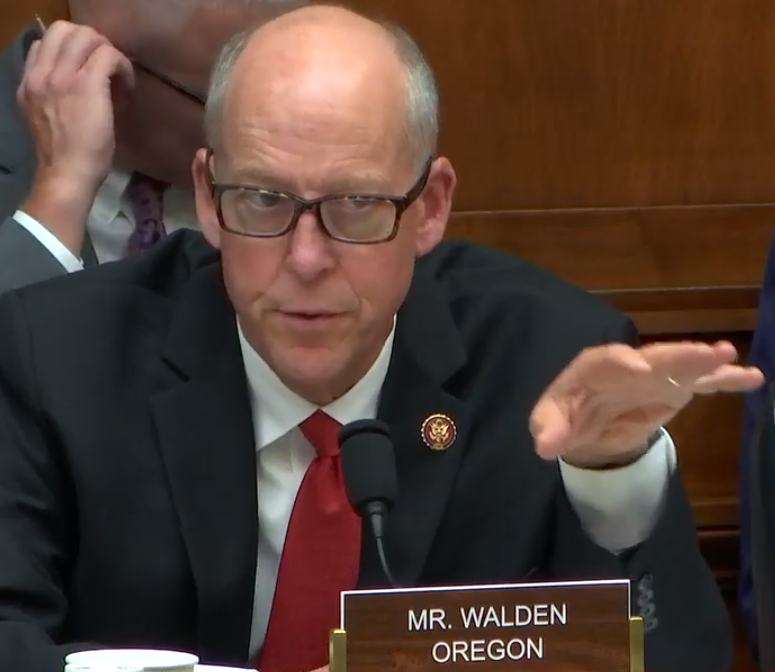House E&C Republican Leaders: Ligado Decision is Done, Move On
The smarter way to stay on top of the multichannel video marketplace. Sign up below.
You are now subscribed
Your newsletter sign-up was successful
House Energy & Commerce Committee Republican says it is time to move on after the FCC voted unanimously to allow Ligado to launch a terrestrial broadband network in spectrum adjacent to GPS, saying it was appropriate to defer to the FCC's subject matter expertise on the issue.
“After hearing from many stakeholders, the FCC made its decision to grant Ligado’s application," they said in a statement released Tuesday (May 19). "This application has been tested, reviewed, revised, and tested again. The FCC is required by law to determine if technology proposals are in the public interest, and we must trust that in making this decision, the FCC took every position into consideration to come to this conclusion."

Releasing the statement were Committee ranking member Greg Walden (R-Ore.), Communications Subcommittee ranking member Bob Latta (R-Ohio), and Consumer Protection Subcommittee ranking member Leader Cathy McMorris Rodgers (R-Wash.), joined by Environment and Climate Change Subcommittee ranking member John Shimkus (R-Ill.).
The Department of Defense and GPS industry execs have continued to push back on the decision, saying they do not trust that Ligado can operate without threatening to interference with crucial guidance and navigation systems.
FCC: Senate Ligado-Related Attacks Are 'Baseless Fearmongering'
"These decisions will only get more difficult as technologies develop, but we need to trust the expert agencies who make spectrum decisions," they said. "The Energy and Commerce Committee takes seriously its authority and responsibility to oversee spectrum management activities of all agencies."
Shimkus cited both his military background and the fact that he has been engaged in the debate between tech and defense for almost a decade, Ligado (formerly LightSquared) has been trying to get access to the satellite spectrum for that long. "[T]he reality is after extensive testing by engineers and unanimous approval by the FCC, the defense community’s claim that a land-based, low-power transmission with guard bands would render the GPS unusable strains credibility. Allocating finite spectrum while preventing interference is a delicate task, but it’s one that must continue to be carried out by the appropriately specialized agency with oversight by the committees of jurisdiction," he said.
The smarter way to stay on top of the multichannel video marketplace. Sign up below.
Related: FCC, Ligado Draw Major Fire in Armed Services Committee
But there is plenty of division in Congress over the issue.
The FCC got letters from members of both the House and Senate Armed Services Commitees, and from both sides of the aisle, asking it to stay the decision and/or rethink it.
The House members said their committee is pushing DOD to share as much spectrum for 5G as possible, but not if it is a national security threat.
The Republican chairman of the Senate Armed Services Committee, James Inhofe (R-Okla.) held a hearing on the decision and was clearly unhappy with it. He said the issue boiled down to risk and that that risk should not come at the benefit of one company and its investors. He appeared convinced that Ligado's service would interfere with GPS, including military guidance systems. He said such interference with GPS would hurt the entire economy. At the end of the day, economic security is national security," he said.
Contributing editor John Eggerton has been an editor and/or writer on media regulation, legislation and policy for over four decades, including covering the FCC, FTC, Congress, the major media trade associations, and the federal courts. In addition to Multichannel News and Broadcasting + Cable, his work has appeared in Radio World, TV Technology, TV Fax, This Week in Consumer Electronics, Variety and the Encyclopedia Britannica.

